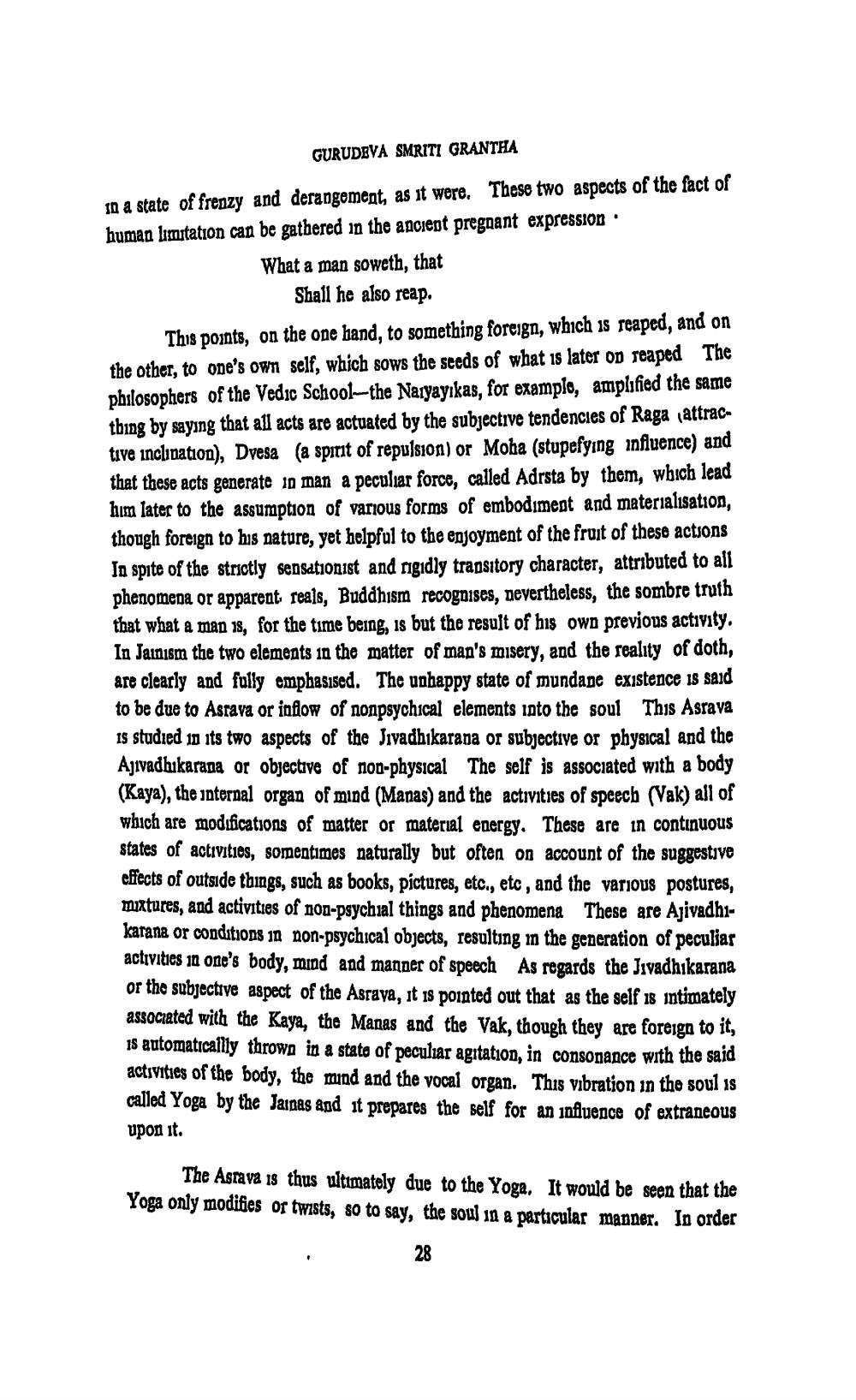________________
GURUDEVA SMRITI GRANTHA
10 a state of frenzy and derangement, as it were. These two aspects of the fact of human limitation can be gathered in the ancient pregnant expression
What a man soweth, that
Shall he also reap. This points, on the one hand, to something foreign, which is reaped, and on
The the other, to one's own self, which sows the seeds of what is later on reaped philosophers of the Vedic School-the Natyayıkas, for examplo, amplified the same tbing by saying that all acts are actuated by the subjective tendencies of Raga attractive inclination), Dyesa (a spirit of repulsion) or Moha (stupefying influence) and that these acts generate in man a peculiar force, called Adrsta by them, which lead him later to the assumption of various forms of embodiment and materialisation, though foreign to his nature, yet helpful to the enjoyment of the fruit of these actsons In spite of the strictly sensationist and rigidly transitory character, attributed to all phenomena or apparent reals, Buddhism recognises, nevertheless, the sombre truth that what a man is, for the time being, is but the result of his own previous activity. In Jainism the two elements in the matter of man's misery, and the reality of doth, are clearly and fully emphasised. The unhappy state of mundane existence is said to be due to Asrava or inflow of nonpsychical elements into the soul This Asrava Is studied in its two aspects of the Jivadhikarana or subjective or physical and the Ajivadhikarana or obiective of non-physical The self is associated with a body (Kaya), the internal organ of mind (Manas) and the activities of speech (Vak) all of which are modifications of matter or material energy. These are in continuous states of activities, somentimes naturally but often on account of the suggestive effects of outside things, such as books, pictures, etc., etc, and the various postures, mixtures, and activities of non-psychial things and phenomena These are Ajivadhikarana or conditions in pon-psychical objects, resulting in the generation of peculiar activities in one's body, mind and manner of speech As regards the Jivadhikarana or the subjective aspect of the Asraya, it is pointed out that as the self 18 intimately associated with the Kaya, the Manas and the Vak, though they are foreign to it, 18 automaticallly thrown in a state of peculiar agitation, in consonance with the said activities of the body, the mind and the vocal organ. This vibration in the soul is called Yoga by the Jainas and it prepares the self for an influence of extraneous upon it.
The Asrava 18 thus ultimately due to the Yoga. It would be seen that the Yoga only modifies or twists, so to say, the soul in a particular manner. In order
28




